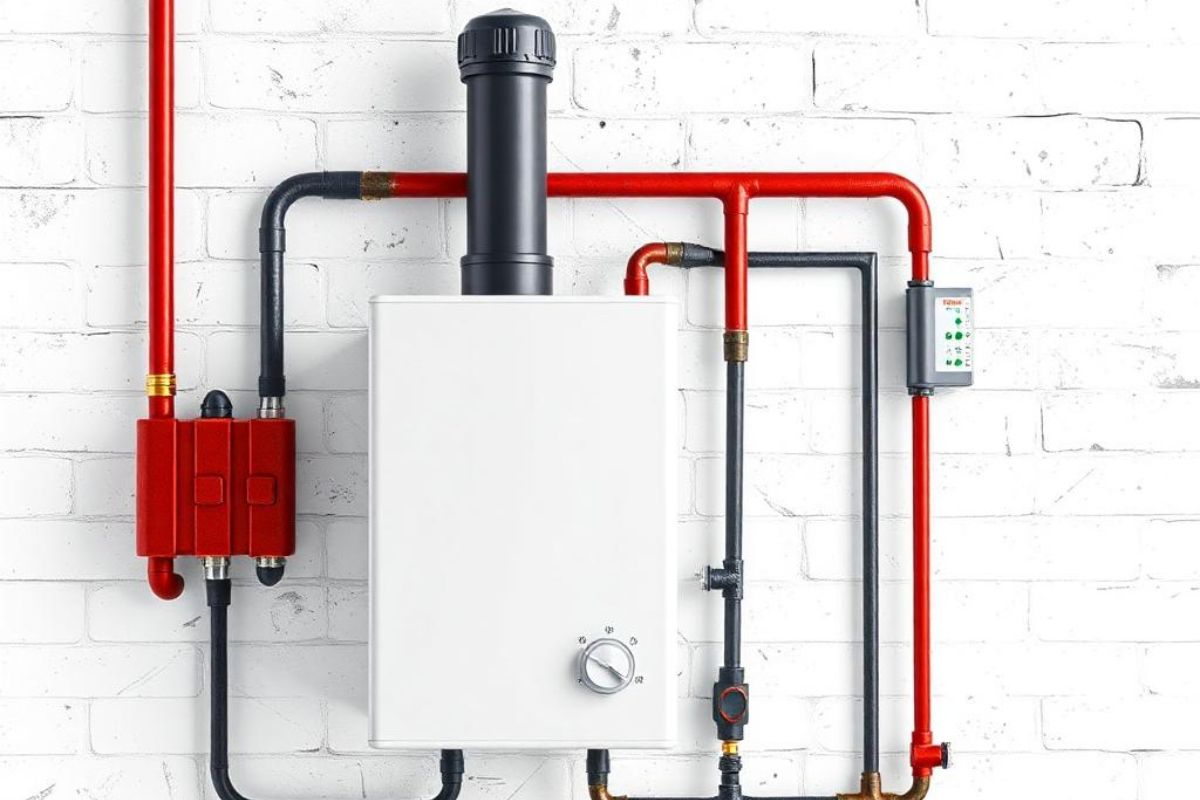3 Signs Your Home's Boiler System Needs to be Repaired or Replaced
.jpg)
If your house feels a little cooler than normal, it might be a sign that there’s an issue with your boiler. This system works hard every day to keep your house warm and your water hot. But like any machine that works hard, it can wear out over time. You can avoid bigger problems in the future if you are able to identify signs that it may be having a few issues.
Your boiler will not just suddenly pack up; it will first show some signs. When you see those signs, you might need boiler repair even if the equipment is still working. In many cases, these signs can be indicative of the beginning of a much bigger problem.
Let’s look at some of the signs you should be on the lookout for.
Signs Your Home’s Boiler May Need Repair or Replacement
Here are three signs that the boiler in your home needs to be fixed or replaced.
1. Strange Smells, Noises, or Flame Colors
When your boiler is working perfectly, it does so with low noise and without smell.
You should pay attention to the following:
- A rotten egg smell that could indicate a gas leak.
- The gas in your boiler not burning correctly resulting in the flame being yellow or orange instead of blue.
- Strange sounds, like whistling, banging, or gurgling that could mean that something is wrong with the inner parts of the system.
A gas leak can be dangerous. If you smell a funny odor, turn off the system and call a professional right away. Do not try to deal with the leak yourself.
The presence of yellow or orange flames may point to the production and presence of carbon monoxide. This gas is also dangerous and should be treated as such by calling a professional. Even though all boilers make low noise, strange and repeating sounds generally mean that certain internal parts are failing.
It's possible to fix these problems, but not always. Sometimes, fixing a leak or a bad burner is possible. However, if the damage is deeper or happens often, it may be safer and cheaper in the long run to replace it.
2. Water Leaks, Low pressure, or Poor Heating
If there’s a leak in the system, you may notice any of the following:
- The pipes or seals could be rusty or worn out.
- Water won't flow properly through your system if the pressure is low.
- The radiators may stay cool or your shower may stay cold.
It's a big sign if you keep adjusting the thermostat, but your house still feels cold. A boiler that works well should give you steady hot water and heat. A broken thermostat or heat exchanger might be responsible if it doesn't.
Sometimes minor leaks can be fixed. But the repairs won't last long if rust or cracks are the cause. You can fix all of these issues at once and save money on your heating bills by getting a new boiler. If you’re wondering how to save money on heating bills, the tips in this article will help you.

3. Breakdowns that Happen Often or High Energy Bills
If the system is healthy, it shouldn't need repairs all the time. It’s a red flag if you've called a repair person more than twice in one winter. You should also know that old boilers use more gas to do the same job as a newer model. When this happens, your bills will go up even if your usage doesn’t change.
Sometimes, it can be hard to find the parts you need to fix older systems. It might not be worth the money to fix it even if it is possible. When the repairs cost half as much as a new system, it's time to think about getting a new one.
Also, if your heating bills go up for no apparent reason, it's possible that your boiler is wasting energy. An old system might only be 60% efficient, while a new one might be up to 90% efficient. That difference can quickly show up in your bills every month.
When Should You Repair Instead of Replace?
Sometimes it's hard to choose between fixing something and getting a new one.
Here’s when repair might still be a good idea:
- The boiler is not more than 10 years old.
- It's still easy to get the parts.
- This is the first or second time something has gone wrong.
- It's easy and doesn't cost much to fix, like tightening a valve or replacing a new thermostat.
Choose replacement if:
- Your system is more than 15 years old.
- You've had several breakdowns.
- You can't get parts for that model anymore.
- Your energy bills keep going up.
- Each year, the cost of repairs keeps rising.
Steps to Check the Condition of Your Boiler
Here are some easy steps you can take if you're not sure about the condition of your boiler:
- Check the flame: Is it blue? If not, get in touch with a tech.
- Look for leaks: Any water under or around the unit could be a sign of trouble.
- Listen: Are there any new noises like clicking, banging, or gurgling sounds?
- Watch your bills: A quick increase in energy use that doesn't match a change in behavior is a red flag.
- Test the heat: If your house is never warm, your boiler might not be working right.
Safety Always Comes First
Don't ignore smells or noises that don't seem right; these can be signs of dangerous gas or carbon monoxide leaks. Make sure there is a carbon monoxide detector close to your boiler. Get everyone out of the house and call for help if it goes off. Your family's safety is the most important reason to keep your boiler in good shape.
You can visit cdc.gov if you are interested in learning more about carbon monoxide poisoning.
Conclusion
A good boiler is something you barely notice; it just works without any problems. But when it does break down, the signs are often loud, leaky, and pricey. It's time to fix your system if it smells bad, makes noise, or can't heat your home properly.
You don't need to wait until everything falls apart. Paying attention to early signs can help you decide whether to fix or replace it. This article has discussed the signs you need to watch out for. We’ve also shared what you can do if you are not sure of the boiler’s working condition.






.jpg)


.jpg)